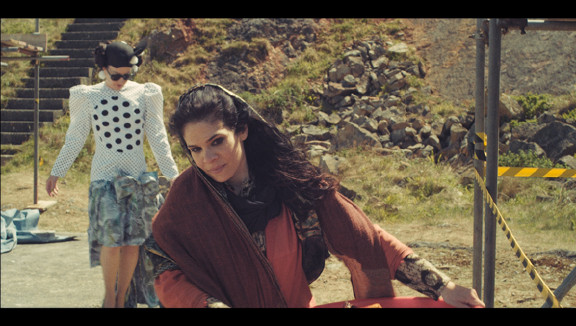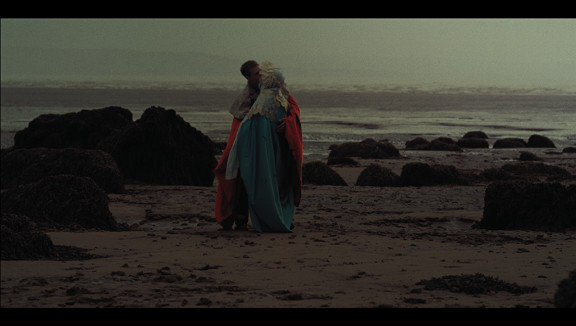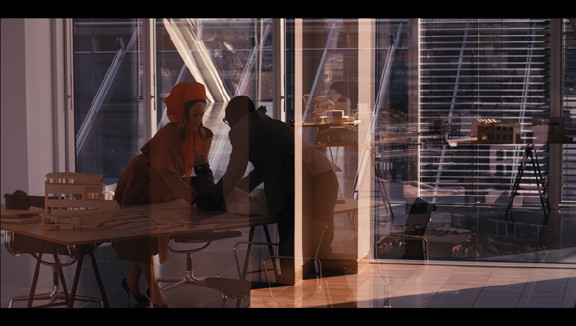Fulll Firearms
Synopsis
The narrative touches upon themes of displacement and storytelling, and stands in the tradition of melodrama. The characters find themselves constantly having to adjust their expectations of each other so that they might be able to communicate within each other’s logic. In her films, Emily Wardill creates situations that examine conditions of precarity in society and how these affect people’s relationships with each other. Her films are fostered by improvisations and workshop sessions, that are set up by the artist to develop themes and characters in a collaborative manner.
“The house in the film produces an echo, because those who occupy it articulate their voices in relation to the making and writing of a history. Tracing the echoes of actions through the production of social spaces does not remain solely within the diegesis of the film. Instead, it extends to the exchange initiated by Wardill with her collaborators as they produce a film together, and also attempt to implicate the viewer in a film that is also a body – one that is constantly living and growing.” - Jacob Korczynski, 2011
Details
- Year
- 2011
- Type of project
- Features
- Running time
- 82 minutes
- Format
- HD
- Director
-
Emily Wardill
- Producer
- City Projects, Film London Artists' Moving Image Network
- Executive Producer
- Serpentine Gallery, If I Can't Dance I Don't Want To Be Part Of Your Revolution, Badischer Kunstverein, FRAC Champagne
- Editor
- Maya Maffoli
- Screenwriter
- Emily Wardill
- Director of Photography
- Taina Galis
- Production Designer
- Emily Wardill, Asta Meldal Lynge
- Sound
- Dominic Fitzgerald
- Principal cast
- IMELDA Catherine Schaub-Abkarian, BIANCA Holli Dempsey, KALAMI Lloyd Mosengo, LASLO Ariyon Bakare, JEROMEEdward Akrout, MARIANNE Elizabeth Elvin, QUARBAAN Avin Shah, SUHAD Danielle Urbas, STANLEY Carl Patrick
- Casting Director
- Rose Wicksteed/Parlour Casting
- Line Producer
- Graham Clayton-Chance
- 1st AD
- Andrew Richards
- 1st AC
- Annette Remler
- 2nd AC
- Jon Muschamp
- Colourist
- Jason R Moffat
- 2nd AC (daily)
- Rupert van der Broek
- Steadicam Operator
- Dawid Pietkiewicz
- Electrician
- Leszek Pietkiewicz
- Gaffer
- Tomas Mirecki
- DIT
- Liran Barlev
- Lighting Trainee
- Benjamin Hunt
- Sound Recordist
- Tom Sedgwick
- Boom Operator
- David Mason
- Costume Designer
- Kate Forbes
- Additional costumes
- Michael Hunt and Barbara Wardilll
- Script Supervisor
- Joel Furness
- Fixer
- Simon Kidner
- Catering Manager
- Bridget Eadie
- Unit Driver
- Richard Harrowing
- Assistant to line producer
- Akua Obeng-Frimpong
- Script advisors
- Michael Harding and Tony Grisone
- Locations
- The National Trust, Polly Braden, Broadgate Towers
Genre
Categories
Production Status
Production Company
Sales Company
None
Page updates
This page was last updated on 12th May 2025. Please let us know if we need to make any amendments or request edit access by clicking below.
See also
You may also be interested in other relevant projects in the database.
 Game Keepers Without Game
Game Keepers Without Game
Director: Emily Wardill
Year: 2010
Game Keepers Without Game is a film set within the structure of a feature length melodrama. Formally based on the Spanish dramatist Pedro Calderón de la Barca’s Play La Vida es Suena (Life is a Dream), it follows the narrative of the return of a child who had been banished from the family home. Translated into contemporary British life, the film is comprised of a mixture of acted scenes where nothing and nobody touches each other. Still shots of objects become characters and a drumming sound track builds up and breaks down like the building of a house.
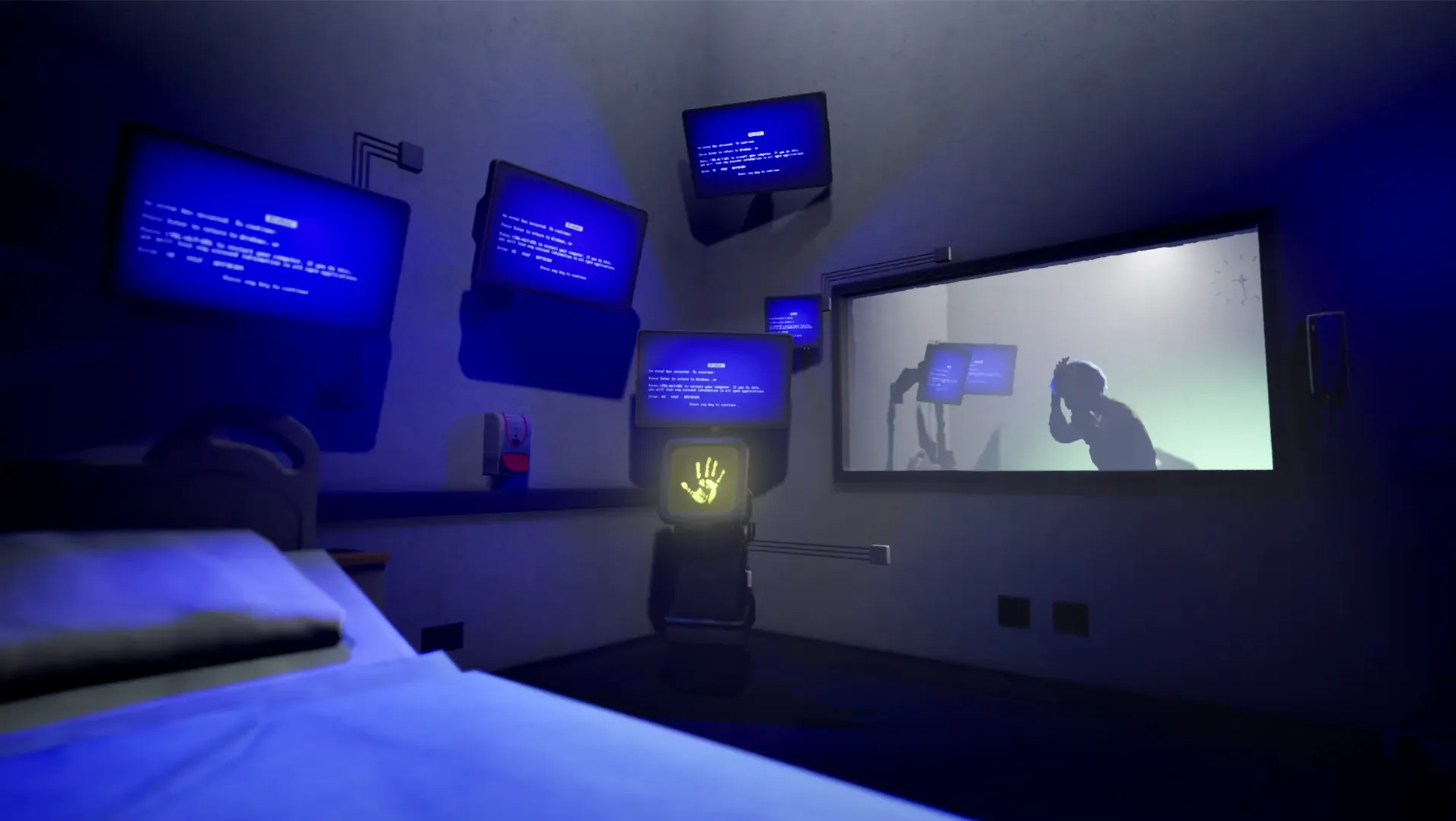 The Baby Factory is Closed
The Baby Factory is Closed
Director: Deepa Mann-Kler
Year: 2026
A 20-minute single-player immersive VR experience that places users inside the body of Zoraan, a British-born Sikh woman navigating menopause amidst climate collapse and the ruins of colonial medicine. You breathe with her. You scream with her. You dance your way out of sedation. Blending real-time visuals, bio-haptic feedback and diasporic sound, this work reframes menopause not as decline but as volatile power; closing ‘The Baby Factory’ to ignite a cultural revolution. Using gesture, voice and biometric feedback, audiences become co-conspirators in a volatile act of embodied rebellion. This is not a metaphor. This is an insurgency. Official Selection SXSW 2026 - XR Competition - World premiere
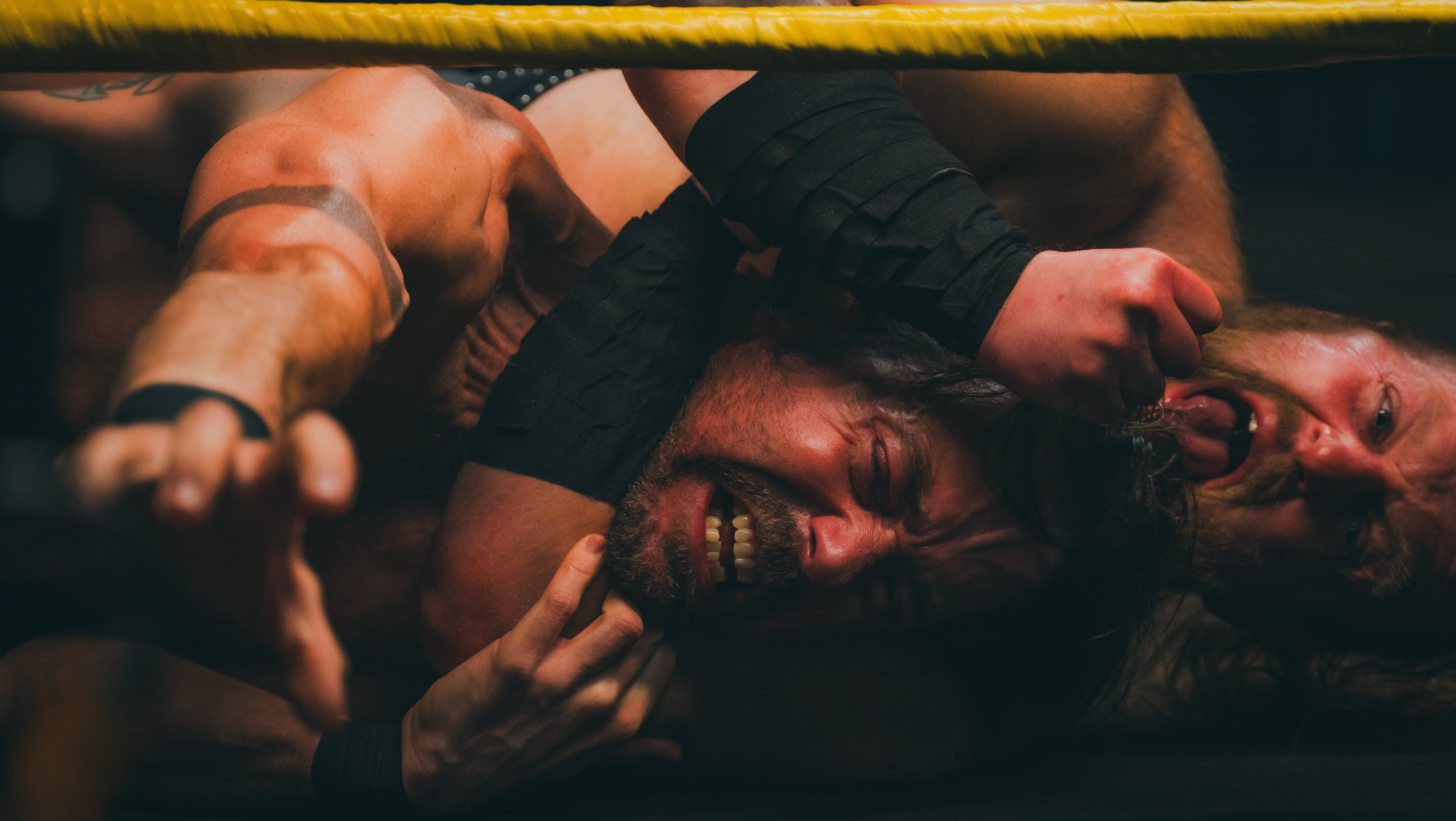 Chokehold
Chokehold
Director: Christopher Bevan
Year: 2026
In a desperate attempt to escape his troubled home life, a young teenage boy runs away to seek out his estranged father, a once-famed professional wrestler.
